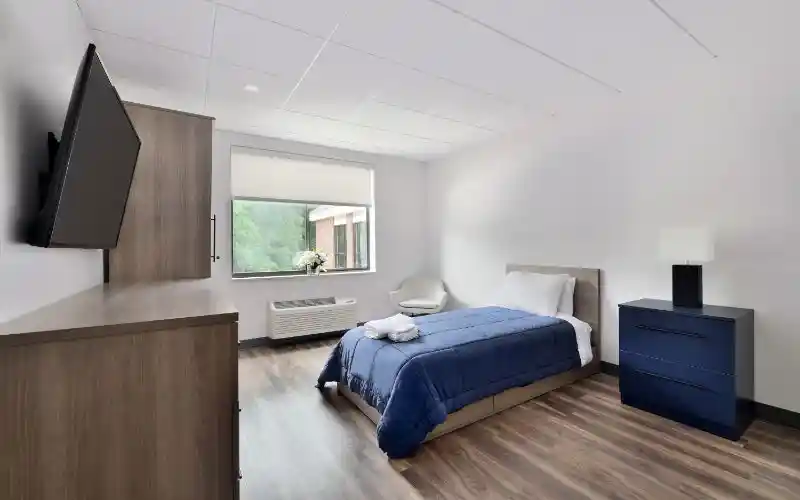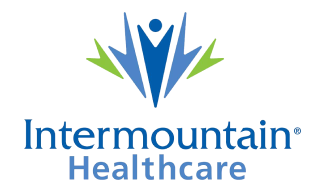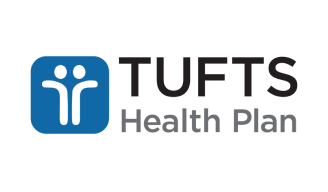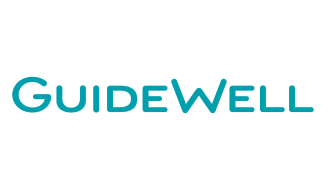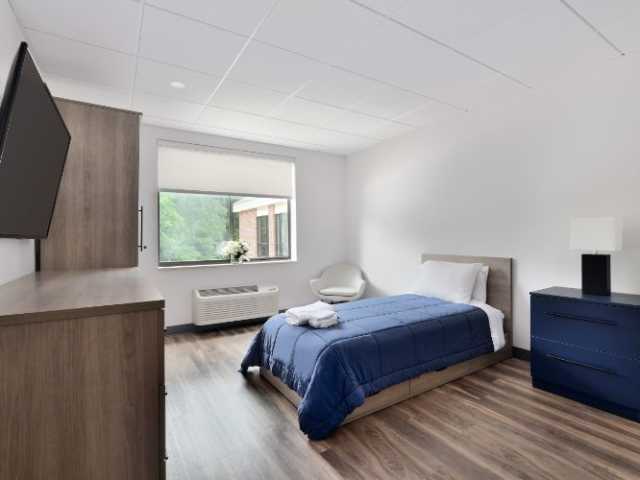
Canton, Massachusetts, United States
Bedrock Recovery Center
Verified
Verified
This provider’s information has been quality-checked by Recovery.com’s Research Team for accuracy and completeness, including center verification through appropriate third-party organizations.
Joint Commission Accredited
The Joint Commission accreditation is a voluntary, objective process that evaluates and accredits healthcare organizations (like treatment centers) based on performance standards designed to improve quality and safety for patients. To be accredited means the treatment center has been found to meet the Commission's standards for quality and safety in patient care.
Provider's Policy
Your insurance can cover all if not most of the costs involved with Drug & Alcohol Rehab. If you are not sure what your current insurance plan covers, we can help! Fill out our insurance verification form below and one of our specialists will reach out to you and review your plan in detail.
Estimated Cash Pay Rate
The cost listed here ($10,000-$40,000) is an estimate of the cash pay price. Center pricing can vary based on program and length of stay. Contact the center for more information. Recovery.com strives for price transparency so you can make an informed decision.
Highlights from the Center
Highlights
These highlights are provided by and paid for by the center.
1-on-1 Counseling
On-site Medical Detox
Trauma-Informed Care
Private Rooms Available
About Bedrock Recovery Center
Bedrock Recovery Center provides all the support clients need for substance use and mental health disorders in one location just a short drive from Boston. Focusing on early recovery and trauma treatment, each client’s needs and goals shape their care plan. Recovery often begins with medical detox and stabilization, followed by symptom monitoring as clients transition to residential care. Separate residential programs address addiction and mental health. Before leaving, clients meet with their care team to plan ongoing support.
Heal with a Comprehensive Framework
BRC emphasizes scientifically proven treatment options facilitated by master’s-level clinicians, including cognitive behavioral therapy (CBT), dialectical behavior therapy (DBT), community reinforcement approach (CRA), motivational interviewing (MI), group therapy, psychoeducation, and family therapy. Complementary experiential therapies, such as exercise and meditation, offer a whole-person approach to recovery.
Feel Supported by a Compassionate Team
Bedrock Recovery Center’s multidisciplinary staff strives to be culturally humble, gender-responsive, and family-centric. They collaborate with clients, their support systems, and each other to achieve recovery goals. The team includes master’s-level clinicians, an onsite psychiatrist, registered nurses, nurse practitioners, psychiatric mental health nurse practitioners, case managers, and coordinators specializing in medication-assisted treatment and aftercare, with behavioral technicians offering additional support.
Experience Hotel-Style Accommodations
BRC’s hotel-style facility provides modern, comfortable semi-private or private rooms with en suite bathrooms. A yoga studio and fully-equipped gym help keep clients active and healthy, while Bedrock Recovery’s game room and movie theater provide outlets for fun and relaxation. Chef-prepared meals take into account any dietary restrictions, including gluten sensitivities. Outdoors, clients enjoy a sprawling outdoor patio with lawn games and a basketball court, and 6 acres of beautiful woodlands.
Read More

Insurance Accepted
Provider's Policy:Your insurance can cover all if not most of the costs involved with Drug & Alcohol Rehab. If you are not sure what your current insurance plan covers, we can help! Fill out our insurance verification form below and one of our specialists will reach out to you and review your plan in detail.
More Ark Behavioral Health Centers
Focus Care for Mental Health and Addiction
Bedrock’s Pathways program offers a dedicated mental health track that serves as an alternative to psychiatric hospitalization, helping clients stabilize mood, manage symptoms, and build emotional resilience. For those facing addiction, Bedrock provides focused treatment that targets substance use, reinforces healthy coping strategies, and supports meaningful, long-term change, ensuring every client receives attentive care suited to their needs.
Find Freedom with Specialized Frontline Care
The Frontline Program at Bedrock helps veterans and first responders find freedom from mental health and addiction concerns, equipping them with the tools and support they need for lasting recovery. Their client-centered approach takes into account the unique needs of each individual, while care providers, many of whom have lived experience, provide understanding, support, and hope throughout the journey.
Access Age-Specific Care for Young Adults
Due to different life experiences and age-specific challenges, many young adults (ages 18-25) benefit more from age-specific care than standard treatments. BRC offers individualized therapy focused on the unique risk factors that lead young adults to drug or alcohol misuse. Young adult clients receive more one-on-one time with a therapist, more family involvement, as well as support for ongoing education.
Feel Safe & Confident in Everyday Life
The compassionate care team at BRC is trained in trauma-informed care and provides tools that empower clients with post-traumatic stress disorder (PTSD) and other trauma-related conditions to face triggering situations and cope with difficult emotions in a healthy way. Dialectical behavior therapy (DBT) and mindfulness-based cognitive therapy (MBCT) help clients safely explore memories and improve at regulating emotions.

Center Overview
Estimated Cash Pay Rate
Executives
Executive treatment programs typically directly support the needs of people who manage businesses and may provide flexible schedules and office space to allow work during treatment.
Young Adults
Emerging adults ages 18-25 receive treatment catered to the unique challenges of early adulthood, like college, risky behaviors, and vocational struggles.
LGBTQ+
Addiction and mental illnesses in the LGBTQ+ community must be treated with an affirming, safe, and relevant approach, which many centers provide.
Men and Women
Men and women attend treatment for addiction in a co-ed setting, going to therapy groups together to share experiences, struggles, and successes.
Midlife Adults
For adults ages 40+, treatment shifts to focus on the unique challenges, blocks, and risk factors of their age group, and unites peers in a similar community.
Professionals
Busy, high-ranking professionals get the personalized treatment they need with greater accommodations for work, privacy, and outside communication.
Veterans
Patients who completed active military duty receive specialized treatment focused on trauma, grief, loss, and finding a new work-life balance.

Treatment Focus
You can admit to this center with a primary substance use disorder or a primary mental health condition. You'll receive support each step of the way and individualized care catered to your unique situation and diagnosis.
Treatment
Specializations
Alcohol
Using alcohol as a coping mechanism, or drinking excessively throughout the week, signals an alcohol use disorder.
Anxiety
Anxiety is a common mental health condition that can include excessive worry, panic attacks, physical tension, and increased blood pressure.
Co-Occurring Disorders
A person with multiple mental health diagnoses, such as addiction and depression, has co-occurring disorders also called dual diagnosis.
Depression
Symptoms of depression may include fatigue, a sense of numbness, and loss of interest in activities. This condition can range from mild to severe.
Drug Addiction
Drug addiction is the excessive and repetitive use of substances, despite harmful consequences to a person's life, health, and relationships.
Young Adults
Emerging adults ages 18-25 receive treatment catered to the unique challenges of early adulthood, like college, risky behaviors, and vocational struggles.
Post Traumatic Stress Disorder
PTSD is a long-term mental health issue caused by a disturbing event or events. Symptoms include anxiety, dissociation, flashbacks, and intrusive thoughts.
Trauma
Some traumatic events are so disturbing that they cause long-term mental health problems. Those ongoing issues can also be referred to as "trauma."
Treatment Services
Detox
Detox fully and safely removes toxic substances from the body, allowing the next steps in treatment to begin with a clean slate.
Licensed Primary Mental Health
Some primary care providers offer mental health diagnosis and treatment. This can prevent patients from developing more serious conditions.
Residential
In a residential rehab program, patients live onsite, with access to daily treatment and 24-hour care. An average stay is 30-90 days.
Approaches
Evidence-Based
A combination of scientifically rooted therapies and treatments make up evidence-based care, defined by their measured and proven results.
Experiential
Expressive tools and therapies help patients process past situations, learn more about themselves, and find healing through action.
Individual Treatment
Individual care meets the needs of each patient, using personalized treatment to provide them the most relevant care and greatest chance of success.
Twelve Step
Incorporating spirituality, community, and responsibility, 12-Step philosophies prioritize the guidance of a Higher Power and a continuation of 12-Step practices.
Therapies
1-on-1 Counseling
Patient and therapist meet 1-on-1 to work through difficult emotions and behavioral challenges in a personal, private setting.
Meditation & Mindfulness
A practiced state of mind that brings patients to the present. It allows them to become fully aware of themselves, their feelings, and the present moment.
Animal Therapy
Animals can inspire trust and self-worth. In this experiential therapy, guided interactions are used to improve social skills and emotion regulation.
Art Therapy
Visual art invites patients to examine the emotions within their work, focusing on the process of creativity and its gentle therapeutic power.
Experiential Therapy
With this approach, patients heal by doing. Therapists help patients process difficult emotions to speak, using guided activities like art or dance.
Family Therapy
Family therapy addresses group dynamics within a family system, with a focus on improving communication and interrupting unhealthy relationship patterns.
Medication-Assisted Treatment
Combined with behavioral therapy, prescribed medications can enhance treatment by relieving withdrawal symptoms and focus patients on their recovery.
Motivational Interviewing and Enhancement Therapy (MET)
This approach is based on idea that motivation to change comes from within. Providers use a conversational framework that may help you commit to recovery.
Music Therapy
Singing, performing, and even listening to music can be therapeutic. Music therapy sessions are facilitated by certified counselors.
Conditions We Treat
Schizophrenia
Schizophrenia is a serious mental health condition that causes hallucinations, delusions, and disordered thinking.
Personality Disorders
Personality disorders destabilize the way a person thinks, feels, and behaves. If untreated, they can undermine relationships and lead to severe distress.
Anxiety
Anxiety is a common mental health condition that can include excessive worry, panic attacks, physical tension, and increased blood pressure.
Bipolar
This mental health condition is characterized by extreme mood swings between depression, mania, and remission.
Burnout
Burnout entails mental and physical exhaustion, and leads to a severe lack of fulfillment. This condition is often caused by overwork.
Depression
Symptoms of depression may include fatigue, a sense of numbness, and loss of interest in activities. This condition can range from mild to severe.
Obsessive Compulsive Disorder (OCD)
OCD is characterized by intrusive and distressing thoughts that drive repetitive behaviors. This pattern disrupts daily life and relationships.
Post Traumatic Stress Disorder
PTSD is a long-term mental health issue caused by a disturbing event or events. Symptoms include anxiety, dissociation, flashbacks, and intrusive thoughts.
Self-Harm
The act of intentionally harming oneself, also called self-injury, is associated with mental health issues like depression.
Stress
Stress is a natural reaction to challenges, and it can even help you adapt. However, chronic stress can cause physical and mental health issues.
Substances We Treat
Alcohol
Using alcohol as a coping mechanism, or drinking excessively throughout the week, signals an alcohol use disorder.
Benzodiazepines
Benzodiazepines are prescribed to treat anxiety and sleep issues. They are highly habit forming, and their abuse can cause mood changes and poor judgement.
Chronic Relapse
Consistent relapse occurs repeatedly, after partial recovery from addiction. This condition requires long-term treatment.
Co-Occurring Disorders
A person with multiple mental health diagnoses, such as addiction and depression, has co-occurring disorders also called dual diagnosis.
Cocaine
Cocaine is a stimulant with euphoric effects. Agitation, muscle ticks, psychosis, and heart issues are common symptoms of cocaine abuse.
Drug Addiction
Drug addiction is the excessive and repetitive use of substances, despite harmful consequences to a person's life, health, and relationships.
Heroin
Heroin is a highly addictive and illegal opioid. It can cause insomnia, collapsed veins, heart issues, and additional mental health issues.
Psychedelics
Hallucinogenic drugs—like LSD—cause euphoria and increased sensory experiences. When abused, they can lead to depression and psychosis.
Methamphetamine
Methamphetamine, or meth, increases energy, agitation, and paranoia. Long-term use can result in severe physical and mental health issues.
Aftercare
Experience
Personal Amenities
Amenities
Special Considerations
Gender-specific groups
Patients in gender-specific groups gain the opportunity to discuss challenges unique to their gender in a comfortable, safe setting conducive to healing.
LGBTQ group
Group therapy unites LGBTQ+ patients in a safe and culturally competent setting, encouraging peer support under the expert leadership of a therapist.
First Responders Program
Paramedics, police officers, firefighters, and others join in a specific First Responders program, usually focused on trauma, grief, and work-life balance.
Young Adults Program
Programs for young adults bring teens 18+ together to discuss age-specific challenges, vocational and educational progress, and successes in treatment.
Activities
Yoga
Yoga is both a physical and spiritual practice. It includes a flow of movement, breathing techniques, and meditation.
Off-Site Amenities
Professional Staff

Dr. Ronald Bugaoan
Medical Director
MD

Brittany Doherty
Clinical Director, Detox and Residential
MS, LADC I

Mariajose Lozada-Oliva
Program Director

Stu Johnson
Executive Director
View More Team Members
Learn more about Bedrock Recovery Center
Testimonial
From personal experience it's easy for me to say that Bedrock Recovery Center was the Rock and Foundation that I was able to build my new life off of. The facility atmosphere was safe and super clean but most importantly the staff was nothing less than the best.
Nick W.
Accommodations
Food & Nutrition
Treatment
Value
Pros
- Luxurious Accommodations (2)
- Friendly & Competent Staff (2)
- Gourmet & Nutritious Food (2)
- Treated With Respect (2)
Janet H
Brad L
Gary L.
Trudi
We love hearing about your treatment experience
Help individuals and families seeking treatment by sharing your first-hand experience with this treatment provider. Review Guidelines.









